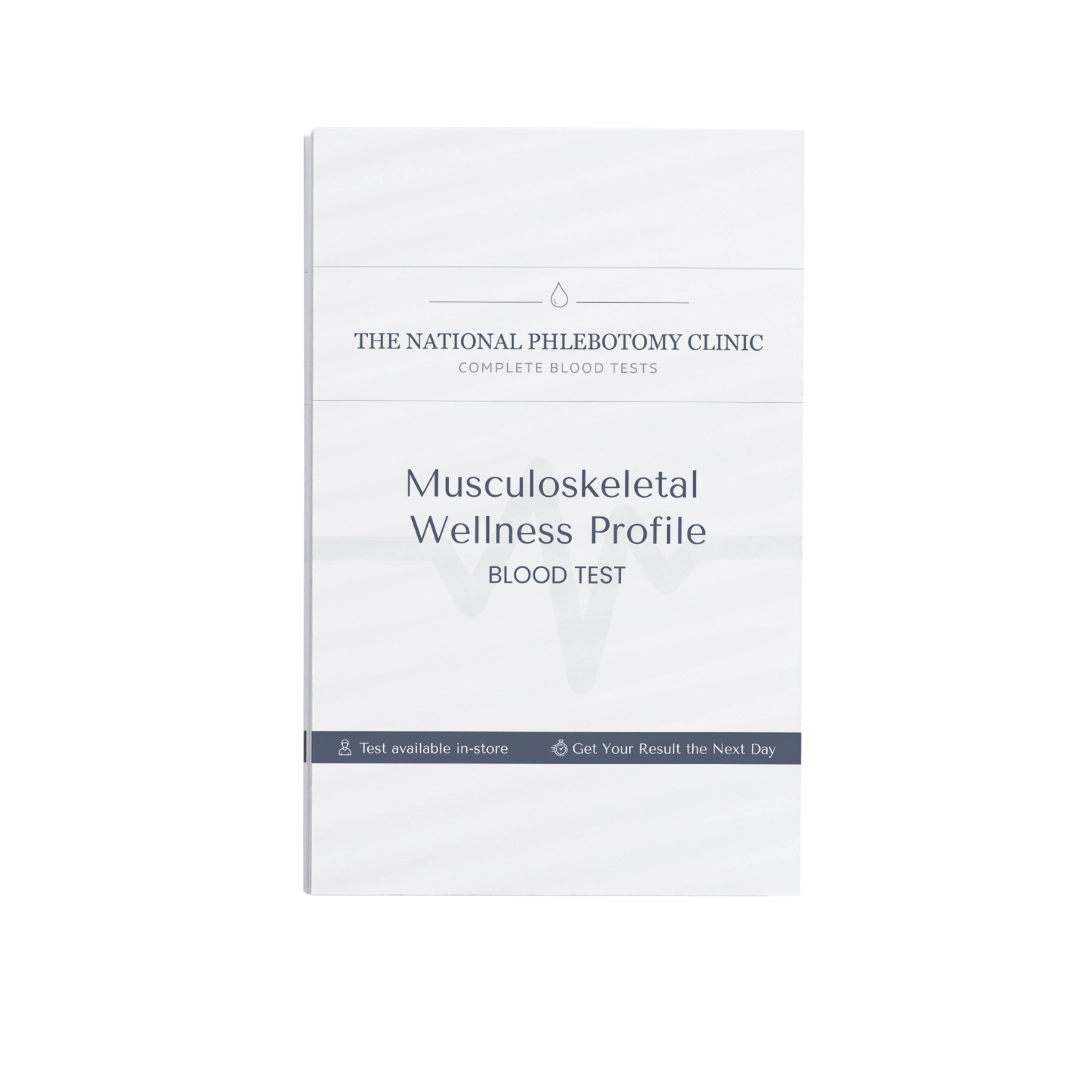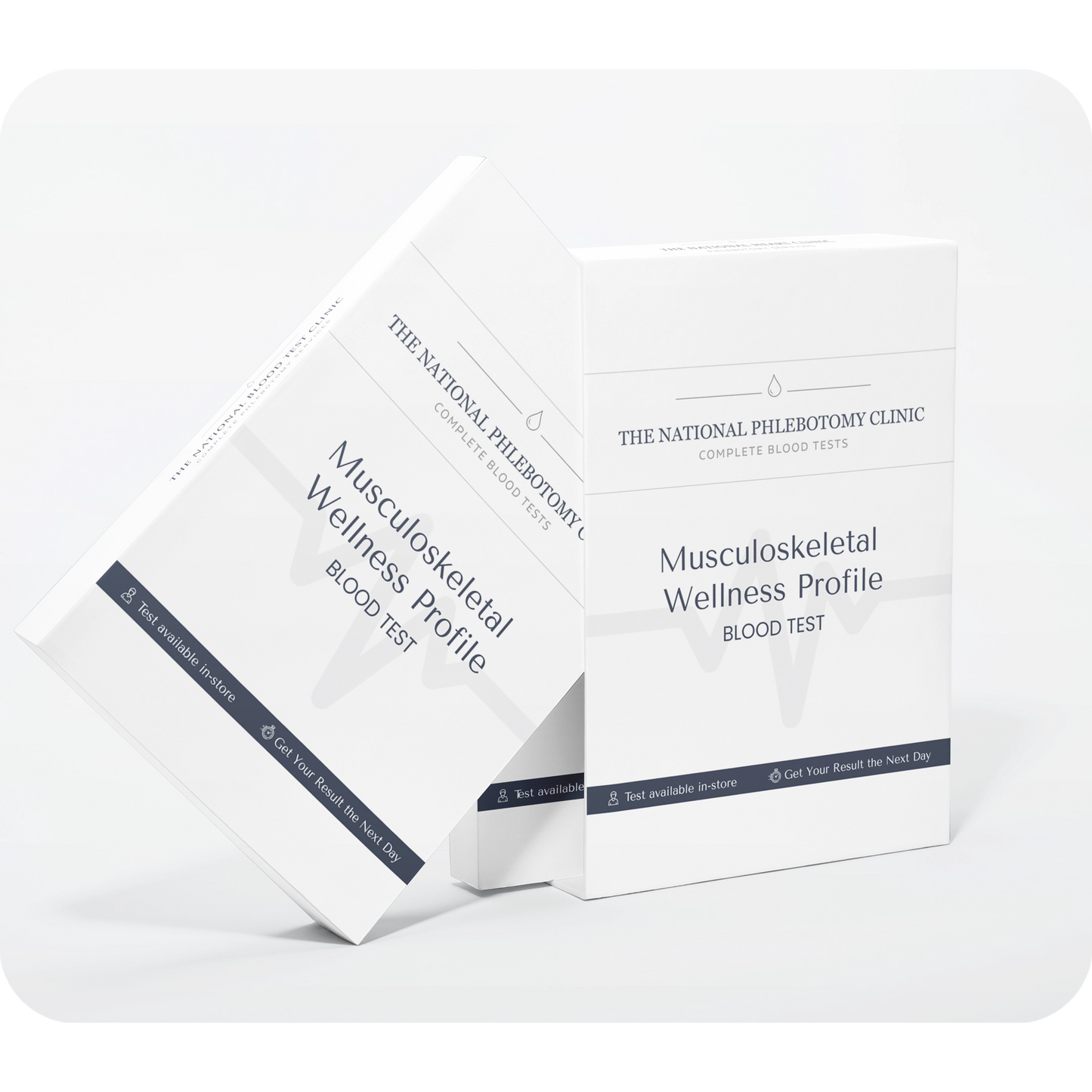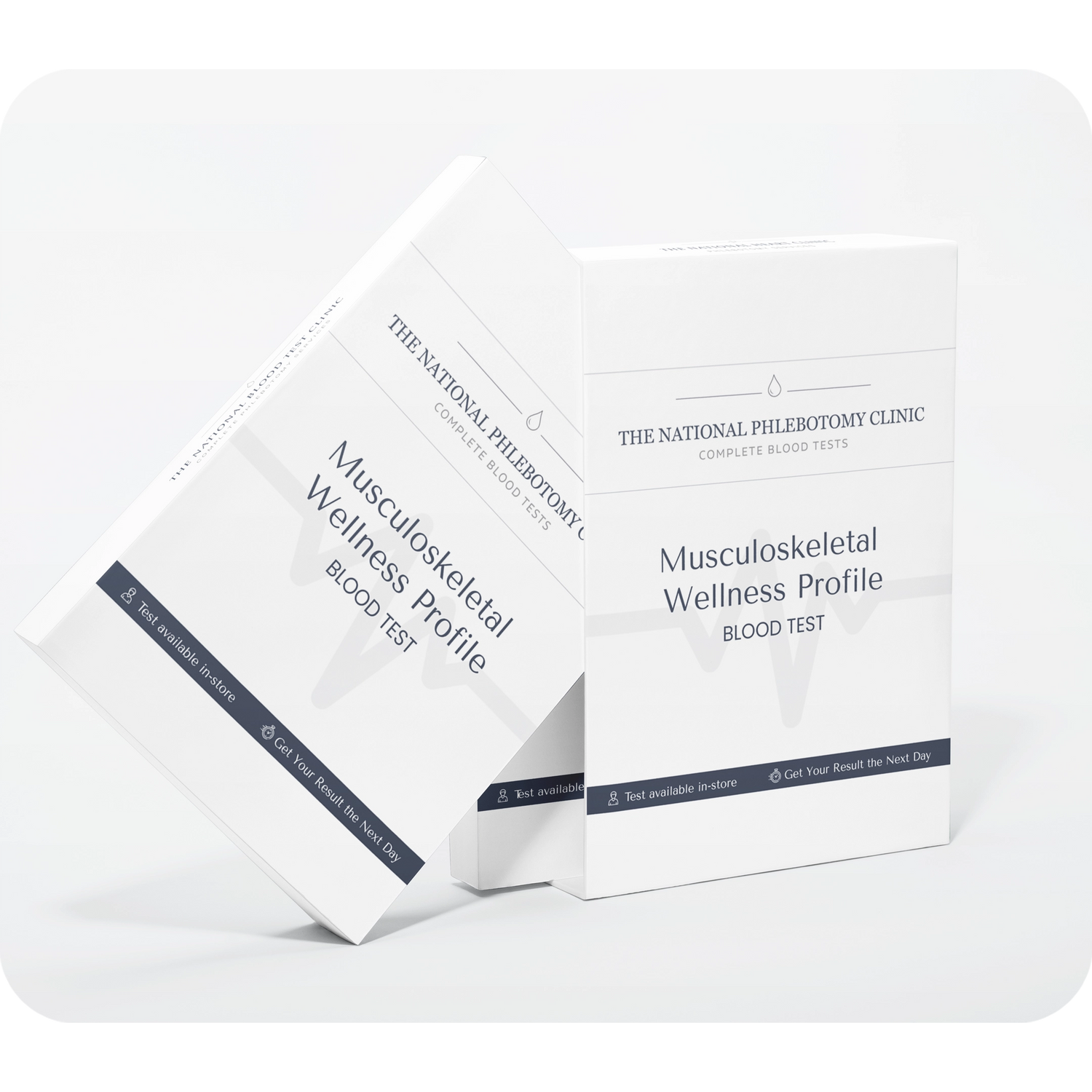My Store
Musculoskeletal Wellness Profile
Musculoskeletal Wellness Profile
Muscle soreness, joint pain, or reduced mobility can be signs of deeper imbalances within your musculoskeletal system. This wellness profile is designed to assess both muscle and joint health by measuring key markers associated with inflammation, tissue damage, and metabolic waste. It’s particularly useful if you’re experiencing persistent discomfort, recovering from injury, or monitoring a chronic musculoskeletal condition.
Couldn't load pickup availability




-
Creatine Kinase
-
Uric Acid
-
Rheumatoid Factor
-
Lactate Dehydrogenase

Why Musculoskeletal Wellness Profile Matters?
Everyday wear and tear, intense physical activity, or autoimmune conditions can all impact the muscles and joints. Identifying subtle abnormalities through key markers helps detect early-stage inflammation or muscular stress. This allows for timely adjustments to your treatment, fitness, or recovery plans, helping to prevent long-term complications.
Why Choose Clinic-Based Blood Testing?
-

Accurate Results
Samples are collected by trained professionals for precise, lab-quality outcomes.
-

Fast Health Insights
Quick, In-clinic testing enables early detection and faster follow-up care.
-

Expert Oversight
Healthcare staff guide the process and help interpret your results.
-

Nationwide Access
Convenient locations across the UK through The National Phlebotomy Clinic.
FAQs
Collapsible content
What does a high creatine kinase level mean?
Elevated creatine kinase tells about recent muscle injury, strenuous exercise, or muscle inflammation. Persistently high levels may indicate muscle disorders or ongoing tissue damage.
Can high uric acid levels indicate joint issues?
Yes, high uric acid can be a sign of gout, a condition where crystals form in the joints causing pain and swelling, particularly in the big toe.
What is the significance of rheumatoid factor in this test?
Rheumatoid factor is an antibody often present in autoimmune diseases like rheumatoid arthritis. Its presence may suggest an underlying inflammatory condition affecting the joints.
Is this test useful for sports injuries or recovery?
Yes, it can help assess muscular damage and inflammation post-exercise or injury, aiding in recovery monitoring and physical therapy planning.
Do I need symptoms to take this test?
No. This test can also serve as a preventive health check, especially for those with high physical demands or a family history of joint or muscle disorders.
Subscribe to our emails
Be the first to know about new collections and exclusive offers.








